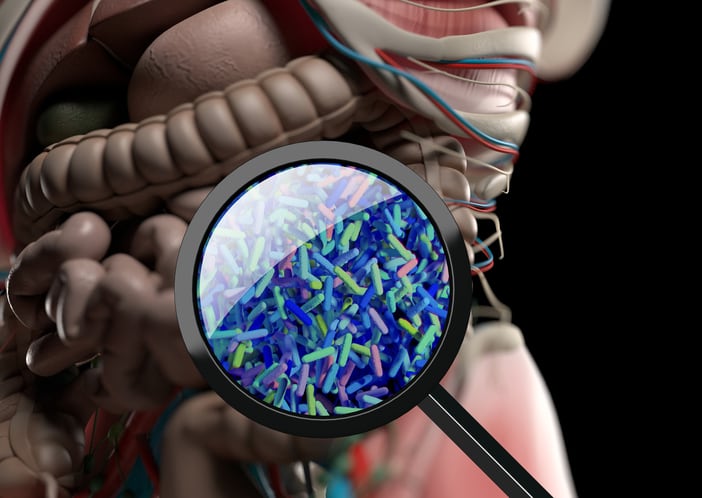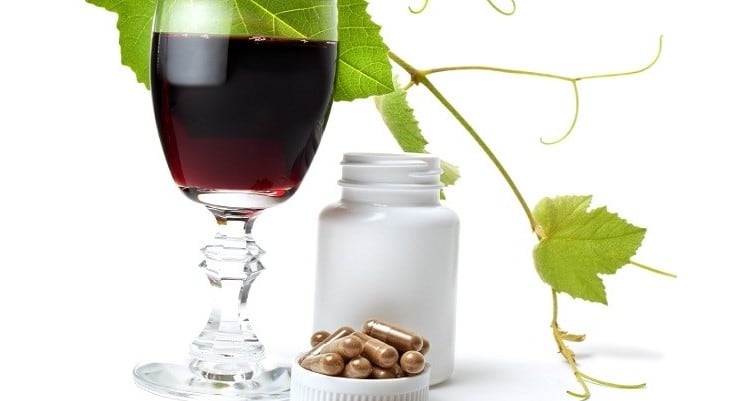Daily intake induced a significant increase in gut Akkermansia abundance, which stimulated goblet cells to make more mucus to protect gut membrane and helps prevent dysbiosis, the authors write.
However, results also revealed decreased levels of both ‘good’ and ‘bad’ cholesterol, as well as bile acid (BA), which may have implications on the excretion of excessive cholesterol by the liver.
Nevertheless, evidence suggests Akkermansia improves metabolism of glucose and lipids in overweight and obese subjects. The authors say current findings could help inform future dietary strategies.
“The identification of dietary strategies to increase Akkermansia abundance in the gastrointestinal tract is of great interest.
“Therefore, the observation that four weeks of grape powder consumption significantly increased Akkermansia abundance is significant.”
Mixed results
The scientists aimed to assess whether daily consumption of two servings of California grapes (whole grape powder) altered the intestinal microbiota, cholesterol, and BA metabolism in healthy adults.
The 19 subjects were aged 21-55 years old and had a similar body mass index (BMI) and body weight between baseline and study end.
Data demonstrated that consumption was associated with changes in gut microbiota and a decrease in blood cholesterols.
Consumption was found to significantly lower total cholesterol levels by 6.1% after twice-daily intake of 46 grams (g) of grape powder for four weeks, comprising 2-3g of dietary fibre.
Low-density lipoproteins (‘bad’ LDL cholesterol) fell by 5.9% and high-density lipoproteins (‘good’ HDL cholesterol) by 7.6%, and BA decreased by 40.9%.
Low-fat diets are known to decrease HDL cholesterol levels by affecting HDL metabolism.
An abundance of Bifidobacterium was detected in participants and there were also notable increases in both Lachnospiraceae UCG-010 and Flavonifractor.
There was limited information on the impact of either bacteria, although Flavonifractor is active in microbial catechin metabolism and affects host immunity.
No adverse gastro-intestinal effects were reported in weekly digestive logs.
Context of cholesterol
Gut microbiome plays a crucial role in host cholesterol homeostasis, including microbial cholesterol and BA metabolism, with changes in the intestinal environment also linked to obesity, type 2 diabetes mellitus, and cardiovascular disease.
Increased HDL is associated with reduced risk of cardiovascular disease and cholesterol excretion. HDL functions to transport excess cholesterol to the liver where it is removed from circulation, via the secretion of bile, and flushed from the body.
Nutrients in the liver and gastrointestinal tract determine the size of the body cholesterol pool, which influences the blood cholesterol levels and whole-body cholesterol homeostasis.
Cholesterol levels can be managed through diet, the authors write, and previous studies in mice have demonstrated supplementation of an obesogenic diet with polyphenol-rich pomegranate extract decreased blood cholesterol levels and liver cholesterol content.
“In addition, a combination of pomegranate extract and inulin fibre further decreased cholesterol synthesis, increased cholesterol degradation, and increased cholesterol and BA excretion, in association with changes in the gut microbiota.”
Fruit containing high amounts of polyphenols have known prebiotic effects that can change gut microbiota composition.
Grapes are one of the most common fruit consumed, however there is little information pertaining to the effects of consumption on gut microbiome and cholesterol metabolism in humans.
Source: Nutrients
Published: doi.org/10.3390/nu13113965
‘Effect of Standardized Grape Powder Consumption on the Gut Microbiome of Healthy Subjects: A Pilot Study’
Authors: Jieping Yang, Patrick Kurnia, Susanne M. Henning, Rupo Lee, Jianjun Huang, Michael C. Garcia, Vijaya Surampudi, David Heber and Zhaoping Li




